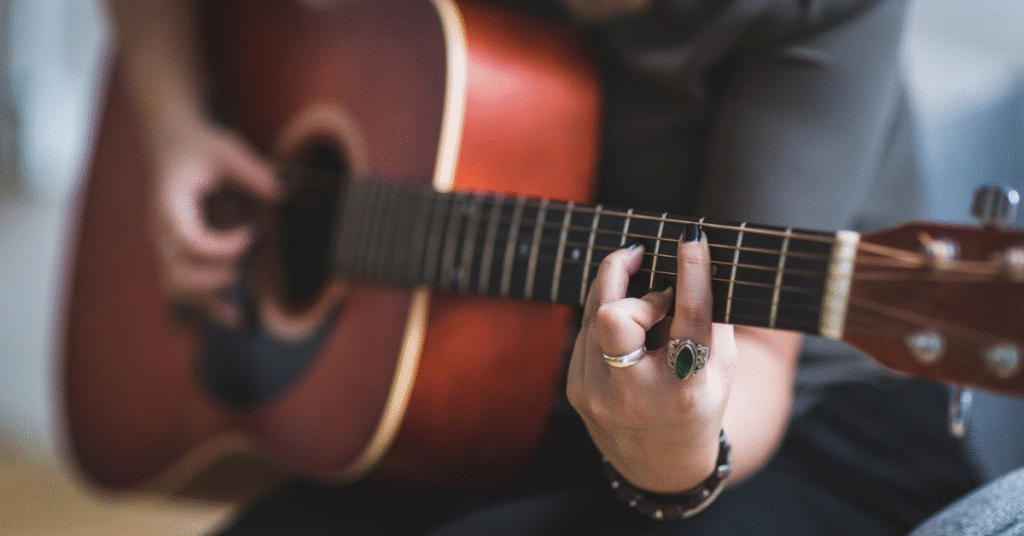How to Play Saxophone A Beginner’s Guide
Affiliate Disclosure
This post contains affiliate links. If you make a purchase, we may earn a small commission.
Get started with “Saxophone Beginner Toolkit” , reeds, sheet music, and online sax lessons curated for new players.

If you’re wondering how to play saxophone and make music that touches the soul, you’re in the right place. The saxophone is one of the most expressive instruments out there—whether you want to play jazz, pop, or classical music, learning to play the sax can be a life-changing journey.
In this guide, we’ll break down everything from choosing your first saxophone to playing your first tune. Whether you’re asking how do you play a saxophone or specifically looking into how to play alto saxophone, we’ve got you covered.
Why Learn How to Play Saxophone?
The saxophone stands out with its smooth tone, emotional depth, and incredible versatility. Here’s why many people choose to learn how to play sax:
-
Soulful Sound: Rich and warm tones perfect for jazz and blues.
-
Wide Genre Range: From rock to classical to funk.
-
Expressive Play Style: Bends, vibrato, and dynamics are easy to control.
-
Visual Appeal: Let’s admit it—it looks cool!.
Choosing the Right Saxophone for Beginners
Before you dive into learning, it’s important to choose the right instrument.
Types of Saxophones:
-
Alto Saxophone – The most beginner-friendly, lighter, and easier to handle.
-
Tenor Saxophone – Deeper sound, slightly larger and heavier.
-
Soprano Saxophone – More advanced, harder to control.
-
Baritone Saxophone – Very large and heavy, not ideal for starters.
For most beginners, the Alto Saxophone is the best choice. It’s comfortable to hold, easier to learn on, and used in school bands and jazz setups. (how to play alto saxophone is one of the most searched phrases!)
How Much Does a Saxophone Cost?
Many beginners wonder how much saxophone they need to spend on. Here’s a rough guide:
-
Student Saxophones: $300–$800
-
Intermediate Saxophones: $800–$1,500
-
Professional Saxophones: $2,000 and above
Tip: Rent one first if you’re unsure about committing long-term.
How to Play Saxophone for Beginners: Step-by-Step
Step 1: Learn the Parts of the Saxophone
Familiarize yourself with these key parts:
-
Mouthpiece
-
Reed
-
Ligature
-
Neck (or “crook”)
-
Body
-
Keys
-
Bell
Knowing the names helps you understand instructions and tutorials more clearly.
Step 2: Assemble Your Saxophone
-
Wet the reed slightly in your mouth.
-
Place it flat on the mouthpiece and secure it using the ligature.
-
Connect the mouthpiece to the neck.
-
Then connect the neck to the saxophone’s body.
-
Make sure everything is tightly in place, but don’t force it.
Step 3: Proper Posture and Hand Placement
-
Sit or stand up straight.
-
Left hand goes on top (near the neck), right hand on the bottom.
-
Use your right thumb to support the sax using the thumb rest.
-
Keep your fingers curved naturally over the keys.
Step 4: Making Your First Sound
-
Embouchure: Place your top teeth lightly on the mouthpiece, bottom lip over your teeth.
-
Blow air steadily using your diaphragm—not your cheeks.
-
Keep a firm seal but don’t bite down.
It might sound squeaky at first—that’s okay. Just focus on producing a consistent tone.
Step 5: Learn Basic Notes
Start with these simple notes:
-
B
-
A
-
G
These require fewer fingers and are easy to play. From there, you can start learning basic scales.
Step 6: Practice Simple Songs
Use beginner sheet music or apps to play:
-
“Mary Had a Little Lamb”
-
“Hot Cross Buns”
-
“Twinkle Twinkle Little Star”
This helps train your muscle memory and ear.
Step 7: Learn Basic Music Theory
Even basic theory will help you a lot:
-
Reading sheet music
-
Understanding rhythm and time signatures
-
Basic scales like C major
Try using flashcards or mobile apps to learn notes and rhythms faster.
Tips to Learn How to Play Saxophone Faster
-
Practice Daily: Even 15–30 minutes helps.
-
Listen to Saxophone Music: Develop your musical ear.
-
Watch Tutorials: YouTube has great learn how to play sax videos.
-
Don’t Rush: Focus on tone quality over speed.
-
Consider a Teacher: In-person or online lessons make a big difference.
Common Mistakes Beginners Make (and How to Avoid Them)
-
Biting too hard on the reed
-
Not warming up
-
Holding the saxophone incorrectly
-
Playing without tuning the instrument
Always tune before playing and take time to warm up with long notes.
Need help choosing reeds or books? Comment below!
FAQ – How to Play Saxophone
Q1. How long does it take to learn saxophone?
A: With regular practice, you can play basic songs in 2–3 months.
Q2. Is saxophone hard to play?
A: Not if you start with the right sax (like alto sax) and follow a step-by-step approach.
Q3. Can I teach myself saxophone?
A: Yes, many people do! Though lessons can help speed things up.
Q4. How do you play a saxophone quietly?
A: Use a practice mute or focus on softer breath control.
Final Thoughts
Learning how to play saxophone opens up a world of musical expression. Start slow, practice daily, and stay patient with yourself. Whether you’re interested in jazz, rock, or classical music, the saxophone will let your emotions sing.
So pick up that horn, start blowing, and let your sax journey begin.
💬 Which sax model are you planning to start with? Drop your thoughts!
Hi, I’m Nikhil Farenjiya, a music producer and professional singer with 10 years of experience. I share my knowledge and passion for music through writing to help aspiring artists grow. My blog is dedicated to inspiring and guiding music lovers on their creative journey.


